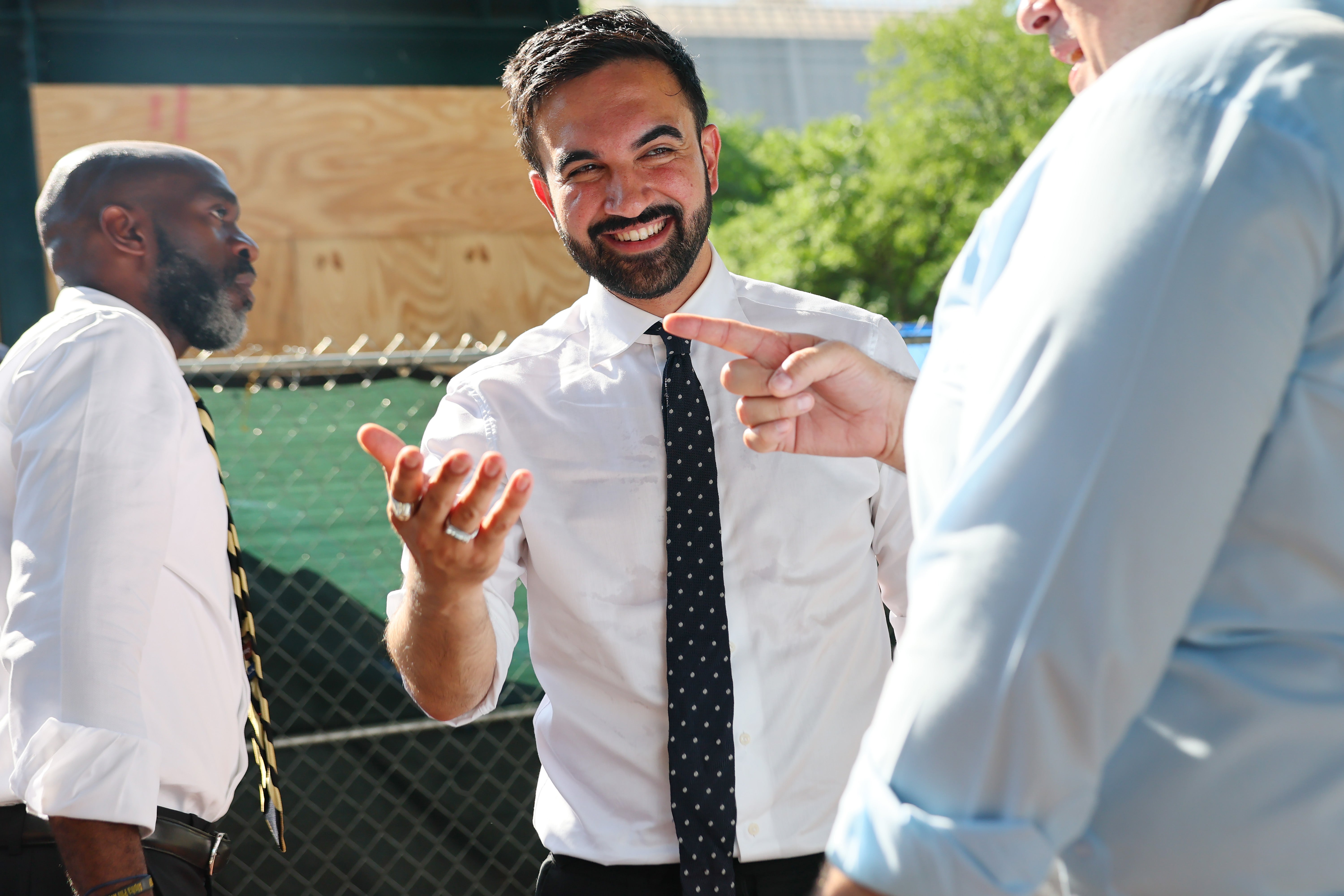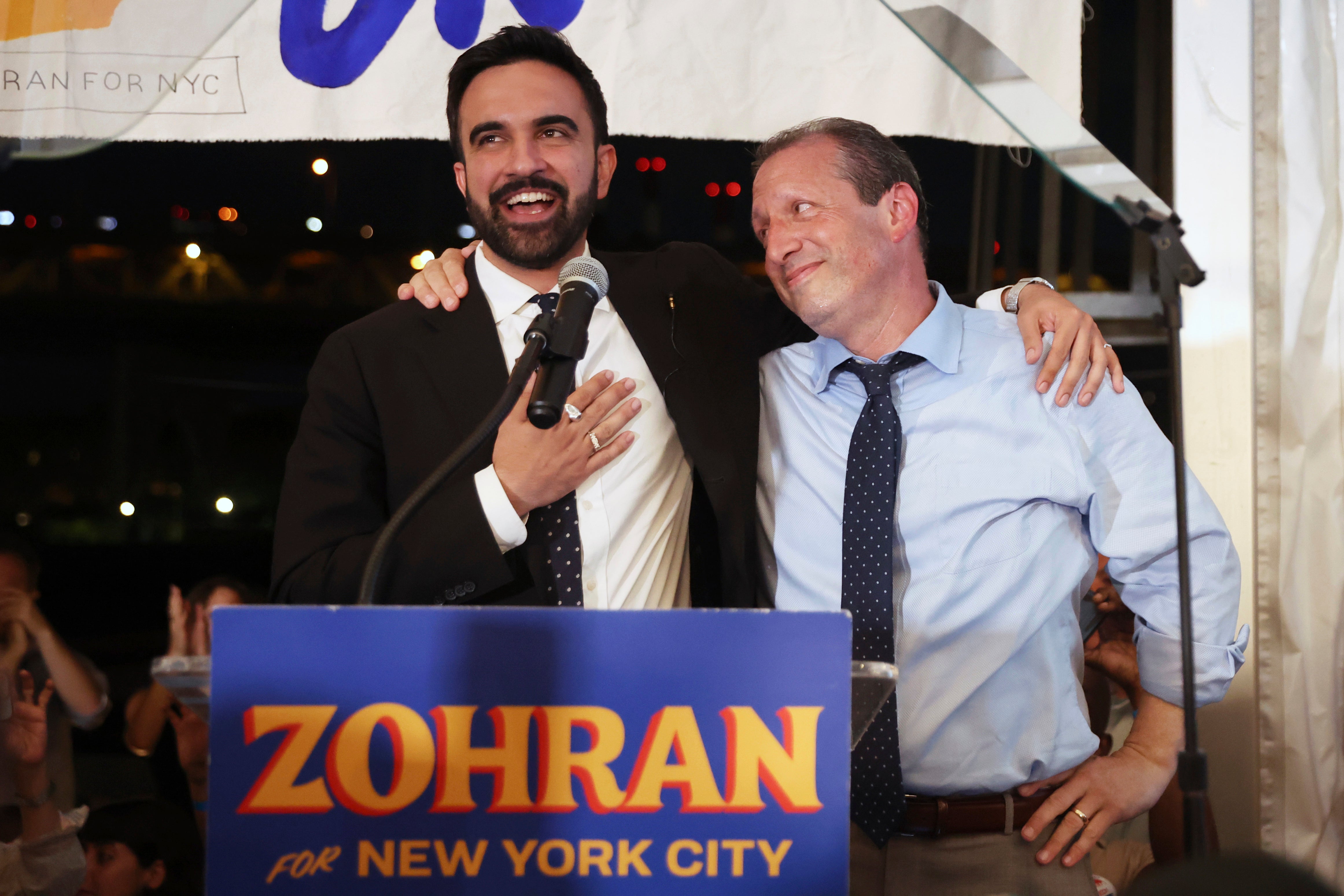Whatever you do, don’t extrapolate this result!
Democrats in Washington and the media were falling over each other on Wednesday and Thursday to insist that the party as a whole should not follow the democratic socialist bent of Zohran Mamdani after the 33-year-old pulled off an upset victory in the New York mayoral primary. Defying the polls, Mamdani beat former governor Andrew Cuomo in the first round of voting — even as Cuomo’s camp went into the day boasting of being ahead.
Mamdani, they argue, does not provide a policy mold for other Democrats to fit themselves into, given New York’s status as a deep-blue stronghold where a Republican is largely assumed to have no shot of winning in November.
They’re correct about the electorate itself not being representative of the country as a whole. But the panic among a certain generation of Democrats, especially in the days leading up to Mamdani’s victory, is indicative of a party elite with some glaring vulnerabilities that were once again laid bare on Tuesday.
Eleven months after former President Joe Biden stepped down from his re-election bid and forced his party into an accelerated catch-up sprint with around 100 days to go, the party’s centrist establishment once again pinned all of their hopes (and cash) on an unpopular, aging statesman beset by ethical concerns.

Guess what happened next?
Not even a massive onslaught of Michael Bloomberg’s wealth could save Cuomo, who remained well behind Mamdani throughout the night as votes were counted. None of the multitude of Democrats who once called on Cuomo to resign over sexual misconduct allegations could give a clear explanation for their change of heart — or why they weren’t backing one of Mamdani’s numerous other rivals.
Axios’s Alex Thompson, speaking on After Party with Emily Jashinsky, described the mindset of party leadership, whom he said told voters: “This is the best candidate. Eat your vegetables.”
For the second time in as many years, it didn’t work.
With a new reality setting in, the party’s caucuses in Washington are split over how to view Mamdani, who now is very likely to become one of the most prominent Democratic politicians in the country. Progressives, of course, are openly embracing him. A few members of the party’s establishment have come around as well, like Rep. Jerry Nadler, who endorsed him on Thursday.
Others have not.
Hakeem Jeffries and Chuck Schumer, both from New York and the two highest-ranking Democrats on the hill, have not made official endorsements of Mamdani’s campaign for the general election (yet). Both are facing calls from prominent progressives to be challenged in their own primaries next year. Tom Suozzi, a Democrat in a front line district in the state, openly tweeted his reservations about the state assemblyman after his victory.
The coverage of the race clearly plays a role here. Even as Mamdani himself was laser-focused on the issue of affordability in New York City, his association with the Democratic Socialists of America and his opposition to Israel’s war in Gaza received an intense focus from a controversy-hungry mainstream political press. Even Mamdani’s joint interview with cross-endorser Brad Lander on Stephen Colbert’s Late Show was dominated by talk about Israel and Palestine.

Front-line Democrats still fear any association with their party’s far-left, whom they mainly view as a punching bag in tough election years. And party leaders in Washington still feel they have to cater to those representatives and senators, whose fates are so closely tied to the party’s ability to fundraise in future cycles.
A larger coalition, however, is taking some non-controversial lessons from Mamdani’s victory — or, at least, lessons that would be non-controversial anywhere besides the Democratic Party.
Voters, they argue, were certain to back the younger candidate less tied to the party’s establishment in a year when more and more voters (especially millennials, who were a leading part of Mamdani’s voter coalition) have lost faith in the party’s establishment to lead themselves, let alone anyone else.
They were also less likely to pick a candidate with such obvious baggage as Cuomo under the argument that a former governor who resigned in disgrace under a cloud of allegations was somehow the stronger pick come November. Especially when the city’s voters were already weary of the evolving scandal around Mayor Eric Adams, who dropped out of the Democratic primary while under a corruption probe.
Progressives and moderates cease their agreement after this point. The party’s centrists will argue that the successful characteristics of Mamdani’s appeal can be replicated in a candidate outside of the party’s left wing. Progressives disagree, claiming that the kind of personal connection to voters only exists among more populist candidates, especially younger ones. They also point to Mamdani’s massive army of volunteers, which they argue is directly tied to lefty organizations like DSA.
And they argue that Cuomo, like Joe Biden and Kamala Harris before him, couldn’t articulate a vision for their governance at all
If nothing else, Tuesday’s election results in New York sent one clear message to party leaders. Their efforts to shut out the progressive wing by throwing big-name endorsements and the crushing weight of big donor money behind weak candidates who have seen too many election cycles will increasingly be met with failure, unless the party can actually convince voters that the center-left has an exciting bench of charismatic younger leaders to pick up the torch.

 4 hours ago
1
4 hours ago
1









